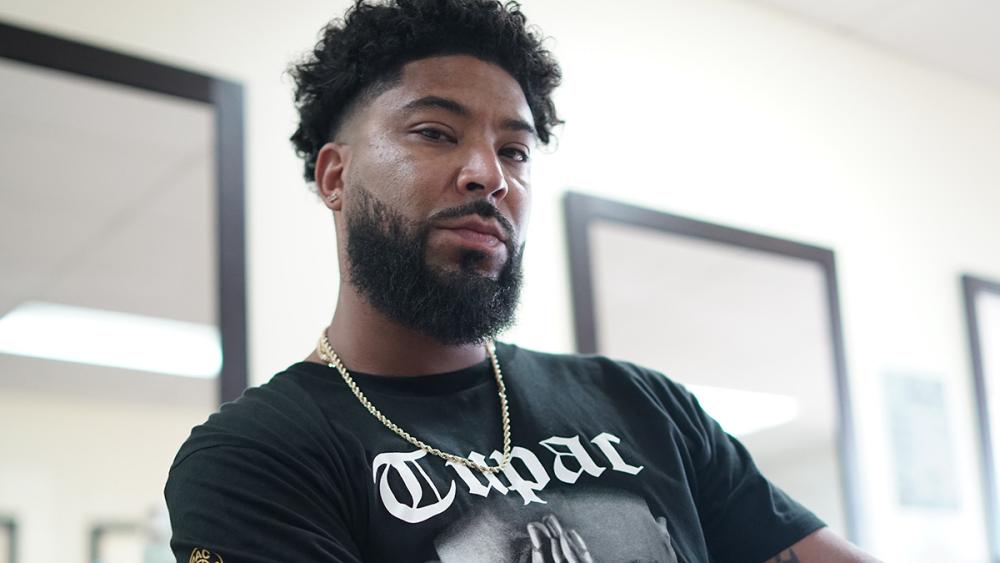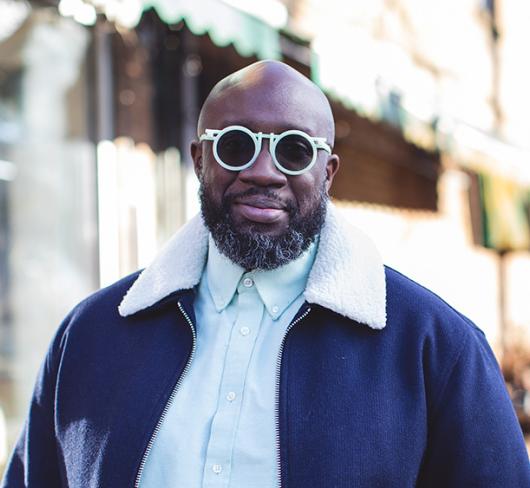
From the Podcast: Supporting Black Male Students in the Face of Anti-Black Stereotypes
It is well documented that anti-Black racism negatively affects the work and success of Black students and educators. In a recent episode of Elementary, ETFO member and author Matthew Morris talked about his new book, Black Boys Like Me. Focusing on the intersections of race, Black masculinity, hip-hop culture and education, Morris talked about how educators can better support Black male students by challenging stereotypes of Black masculinity.
The transcript below has been edited and condensed. You can listen or subscribe to Elementary at etfo.ca or on most podcast apps.
Meagan Perry: What inspired you to write this book?
Matthew Morris: It started when I was in teachers’ college. It was the first time in my life where I actually slowed down and thought about what got me to this position as a young Black man and what stopped or impeded other Black boys like me from academic success or pathways to being successful.
MP: How do you see anti-Black stereotypes and expectations affecting the work of Black male educators?
MM: It’s tricky when it comes to stereotypes and projections of what Black adulthood and Black manhood is supposed to look like juxtaposed with what professionalism is supposed to look like. For Black males, stereotypes are so limiting that they force us to wear masks even in spaces where we’re trying to help and heal the next generation of students. If I feel constricted in the ways in which I’m able to show up as my true self, then how am I serving young Black boys that look up to me? You know, we can change the curriculum to be more equity minded. But if we don’t address the little-c curriculum, the idea of what respectability looks like, then we’re just going to be replicating the same challenges that we’ve faced for decades.
MP: What do you see as the role of unions generally and the role of ETFO specifically in addressing anti-Black racism and equity work?
MM: For me, unions can create safe spaces for their Black members. Events like ETFO’s Unapologetically Black conference, where Black educators can recalibrate and be in conversation with other Black educators about the issues that affect both us and our students, are important opportunities to share, collaborate and think about how we can move forward in positive ways.
MP: What do you think educators can do to ensure that Black students’ perspectives are not erased?
MM: Three things: The first one is that educators need to unlearn the idea that success means behaving in a way that mimics authority That idea prevents us from seeing students for who they really are and respecting their talents and ways of doing things. Second, if you’re working with communities where you don’t live, learn about those communities. Visit the local library where students might hang out, or the YMCA where they play basketball on Friday, or the corner store where they stop in after school. You need to understand their neighbourhood to understand their experiences. Thirdly, we need to stop thinking that teachers are the arbitrators of what’s important and what knowledge is. When we are open to our students’ curiosities and their ways of knowing, we are validating them as people and creating rich learning environments where students feel included, welcomed and like they belong.
Meagan Perry is a member of ETFO executive staff.
